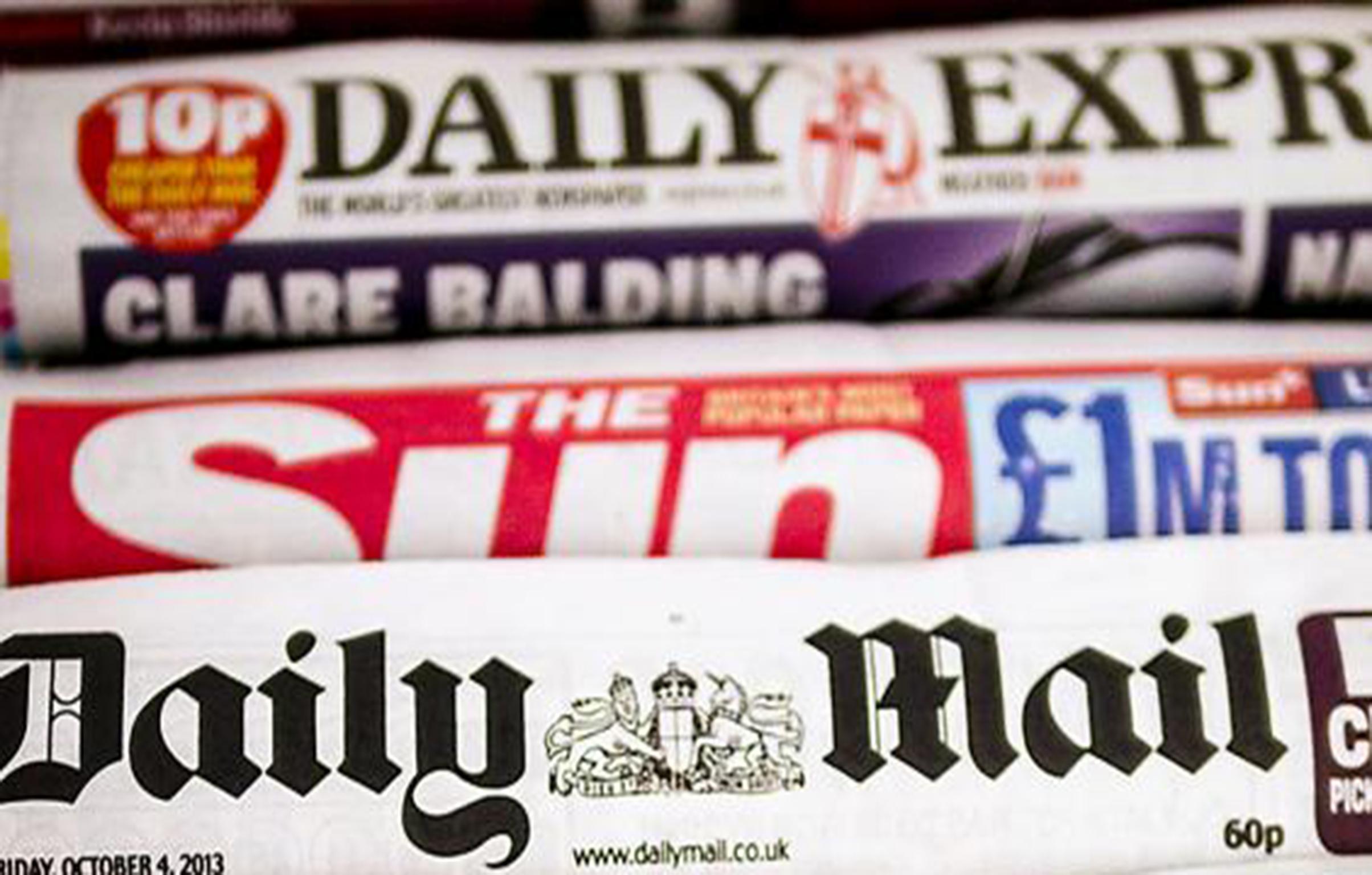Brexit: Media coverage of EU referendum ‘acrimonious and divisive’, finds report
Coverage of immigration issues tripled over course of the 10-week campaign and was framed in 'almost entirely negative' terms, study finds

Your support helps us to tell the story
From reproductive rights to climate change to Big Tech, The Independent is on the ground when the story is developing. Whether it's investigating the financials of Elon Musk's pro-Trump PAC or producing our latest documentary, 'The A Word', which shines a light on the American women fighting for reproductive rights, we know how important it is to parse out the facts from the messaging.
At such a critical moment in US history, we need reporters on the ground. Your donation allows us to keep sending journalists to speak to both sides of the story.
The Independent is trusted by Americans across the entire political spectrum. And unlike many other quality news outlets, we choose not to lock Americans out of our reporting and analysis with paywalls. We believe quality journalism should be available to everyone, paid for by those who can afford it.
Your support makes all the difference.Media coverage of the EU referendum campaign was “acrimonious and divisive” and dominated by “overwhelmingly negative” reports about the consequences of migration to the UK, a report has found.
After analysing more than 15,000 articles published online by 20 national news outlets, researchers at King’s College London found that most coverage on immigration was framed, primarily by Leave campaign leaders and the Leave-supporting press, in “almost entirely negative” terms.
Language invoking fear was increasingly prominent throughout the campaign, with both sides adopting the “Project Fear” label over the 10-week campaign, the report found.
Coverage of immigration tripled over the course of the 10-week campaign, rising faster than any other political issue.
Almost half of all referendum-related articles in the final four weeks which referred to the economy also referred to immigration. That compared with just over a quarter during the first six weeks, according to the report.
There were more leading front pages about immigration during the campaign than about the economy, with six in 10 of them published by three newspapers — the Daily Express, the Daily Mail and The Daily Telegraph.
Immigration and immigrants were blamed by these outlets for many of the UK’s political, economic and social problems, the report says.
Prominent politicians like Iain Duncan Smith, Michael Gove, Boris Johnson, and Nigel Farage all frequently made negative claims about immigration and about the damaging effect of migrants on the UK, which the report adds were “covered copiously and prominently in the press”.
The findings show that three metaphors were dominant in the coverage of refugees and migrants.
Words related to water, like “floodgates” or “waves” were often used along with those used in relation to animals or insects like "flocking" and "swarming".
“Project fear” and “scaremongering” were also widely used during the campaign by both the Leave and Remain camps to predict frightening outcomes should voters decide to opt for the other side.
From 15 April until the vote on 23 June, “project fear” was referred to in 739 articles - 250 times in the final fortnight of the campaign. “Scaremongering” was also mentioned in 737 Brexit-related articles.
Other political issues were “dwarfed” by coverage of the economy and immigration, the report states.
The implications of Brexit on each of the UK’s devolved nations, the environment, foreign policy, defence and education were all reported and editorialised “far less” than these two primary political issues.
The study infers that the campaign leading up to the EU referendum was the UK’s “most divisive, hostile, negative and fear-provoking of the 21st century”, and that this was “encouraged and enflamed by a highly partisan national media”.
It concludes: “Much of the acrimony, partiality and suspicions of dishonesty that characterised the campaign has remained. The consequences of the EU Referendum campaign are still being played out, and will continue to be throughout the period that Britain negotiates its departure from the EU and beyond.
“The implications of a divisive, antagonistic and hyper-partisan campaign – by the campaigners themselves as much as by many national media outlets – is likely to shape British politics for the foreseeable future.”
Gordon Ramsay, co-author of the report, said it showed "that the referendum campaign was divisive, negative, and filled with accusations of dishonesty and bad faith."
He added: "While much of this was driven by the campaigners themselves, a significant amount of the coverage adopted a similar approach. Negative campaigning like this can alienate and polarise the electorate, as well as accentuate divisions after the vote itself."
Join our commenting forum
Join thought-provoking conversations, follow other Independent readers and see their replies
Comments